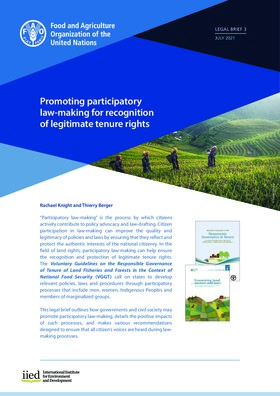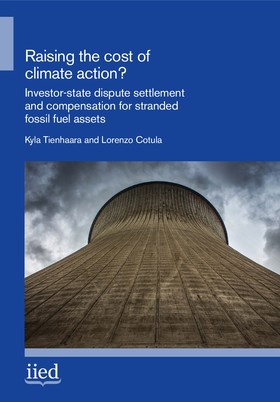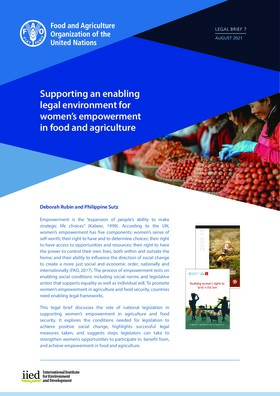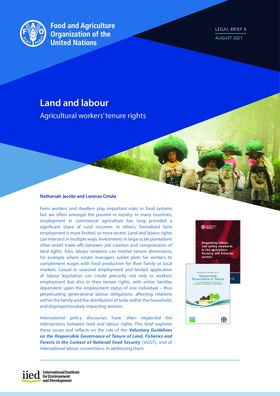
Topics and Regions
Landpages.co.ke is a medium of passing this message.
Details
Public Email
Location
Contributions
Displaying 481 - 490 of 740Gold and the goddess:How mining polluted Nigeria’s sacred Osun river
Gabon sets example of how to preserve the Congo Basin rainforest
Promoting participatory law-making for recognition of legitimate tenure rights
"Participatory law-making” is the process by which citizens actively contribute to policy advocacy and law-drafting. Citizen participation in law-making can improve the quality and legitimacy of policies and laws by ensuring that they reflect and protect the authentic interests of the national citizenry. In the field of land rights, participatory law-making can help ensure the recognition and protection of legitimate tenure rights.
Integrated Mine Closure: Good Practice Guide
This document is intended to promote a disciplined approach to integrated closure planning and increase the uniformity of good practice across the sector. The concepts apply equally to both large and small mining companies.
Improving transparency and accountability in the flow of benefits to mining communities
This report seeks to investigate and propose mechanisms that can be used to improve the flow of benefits to mining-affected communities. The report sets out what requirements should be met for a community trust (or similar legal vehicle) to offer protection of trust assets. It sets out recommendations on the manner in which the legal document should be crafted to protect communities, and proposes that the time is ripe for regulation and clarity. Although it is focused on South Africa, it will be relevant for countries facing similar challenges in the mining and other commercial sectors.
Raising the cost of climate action? Investor-state dispute settlement and compensation for stranded fossil fuel assets
Global efforts to combat climate change will require a transition to renewable energy and government action to reduce reliance on fossil fuels such as coal, oil and gas. If followed through, such action will create stranded assets – in other words, economic assets affected by premature write-downs or downward revaluations, or converted to liabilities.
Primer on International Investment Treaties and Investor-State Dispute Settlement
This primer gives an accessible overview of key aspects surrounding International Investment Treaties and Investor-State Dispute Settlement, and the implications for promoting a rights-based approach to governance.
Designing a Legal Regime to Capture Capital Gains Tax on Indirect Transfers of Mineral and Petroleum Rights: A Practical Guide
This guidance paper focuses on issues that the governments of developing countries may wish to consider if they adopt a policy to tax such transfers. In doing so, it examines and provides the language of the legislative and regulatory provisions employed by countries that have adopted such a policy to tax, and comments on the pros and cons of these provisions.
Supporting an enabling legal environment for women’s empowerment in food and agriculture
Empowerment is the “expansion of people’s ability to make strategic life choices”. According to the UN, women’s empowerment has five components: women’s sense of self-worth; their right to have and to determine choices; their right to have access to opportunities and resources; their right to have the power to control their own lives, both within and outside the home; and their ability to influence the direction of social change to create a more just social and economic order, nationally and internationally.
Land and labour
Land and labour rights can intersect in multiple ways. Investments in large-scale plantations often entail trade-offs between job creation and compressions of land rights. Also, labour relations can involve tenure dimensions, for example where estate managers sublet plots for workers to complement wages with food production for their family or local markets.






